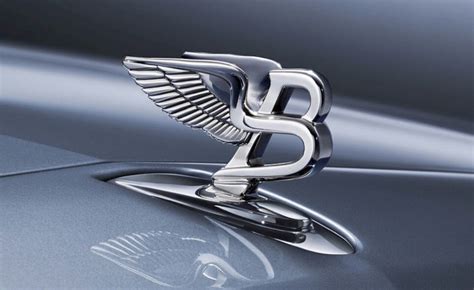Discover the rich history of Essex Car Company, from its establishment to its innovative car models and enduring legacy. Learn about the impact of World War I on the company.
Establishment of Essex Car Company
Contents
The establishment of Essex Car Company can be traced back to 1918 when the company was founded in Detroit, Michigan by a group of investors led by Hudson Motor Car Company. The primary objective of Essex was to produce affordable yet high-quality vehicles for the average consumer. With the booming automotive industry in the early 20th century, the founders saw a great opportunity to carve out a niche for themselves in the market.
In its early years, Essex focused on engineering and producing reliable and durable vehicles that could compete with other leading car manufacturers of the time. The company quickly gained popularity for its innovative designs and commitment to providing value for money. This helped Essex to establish itself as a reputable automotive brand in a relatively short period.
As Essex continued to expand its operations, it quickly became a dominant player in the automotive market, offering a range of models that catered to different consumer preferences. The company’s dedication to quality and affordability made it a preferred choice for many car buyers, further cementing its position as a formidable force in the industry.
Despite facing challenges and competition from other car companies, Essex persevered and continued to grow, eventually gaining a significant market share. The establishment of Essex Car Company played a crucial role in shaping the automotive landscape, providing consumers with reliable and affordable transportation options during a time of rapid industrialization and technological advancement.
Development of early car models
The development of early car models marked a significant shift in the transportation industry. In the late 19th and early 20th centuries, innovators and engineers were experimenting with various designs and technologies to create the first mass-produced automobiles. These early car models were the result of years of trial and error, with inventors like Henry Ford and Ransom E. Olds leading the way in revolutionizing the concept of personal transportation.
Initially, early car models were luxury items reserved for the wealthy elite. However, as advancements in manufacturing and technology made production more efficient, the cost of automobiles began to decrease, allowing for a wider market of consumers to afford these vehicles.
One of the most notable early car models was the Ford Model T, introduced in 1908. This groundbreaking vehicle was the first to be produced using assembly line manufacturing, which significantly reduced the cost of production and made automobiles more accessible to the general public. The success of the Model T played a crucial role in shaping the mass consumer culture that emerged in the early 20th century.
Early car models also sparked innovation in design and functionality. Features such as electric starters, improved suspension systems, and streamlined body styles were introduced, setting the stage for the future of automotive engineering. These early models laid the groundwork for the modern automobile industry and paved the way for the diverse range of vehicles we see on the roads today.
Impact of World War I
The impact of World War I on the Essex Car Company was significant and far-reaching. As the demand for automobiles decreased during the war, the company had to shift its focus from producing cars to manufacturing war materials such as trucks, ambulances, and aircraft engines. This change in production not only helped the war efforts but also allowed the company to survive during a time of economic instability.
Furthermore, the war had a lasting impact on the company’s workforce. Many of its skilled workers were called to serve in the military, leaving a shortage of labor in the factories. This forced the company to recruit inexperienced workers and train them quickly, leading to a shift in the demographics of its employees.
Additionally, the war brought about technological advancements and innovations that would later benefit the automotive industry. The experience gained from producing military vehicles and engines during the war provided valuable knowledge and expertise that could be applied to the development of future car models.
Overall, the impact of World War I on the Essex Car Company was multi-faceted, influencing its production, workforce, and technological advancements. It was a challenging time for the company, but it also presented opportunities for growth and adaptation that would shape its future endeavors.
Innovations in car manufacturing
One of the key factors that set Essex Car Company apart from its competitors was its dedication to innovation in car manufacturing. The company was one of the first to implement assembly line production, streamlining the process of building automobiles and making them more affordable for the average consumer. This was a game changer for the industry, as it allowed for mass production of vehicles and paved the way for the modern automotive industry as we know it today.
Furthermore, Essex Car Company was also a trailblazer in the use of new materials and technologies in car manufacturing. They were early adopters of aluminum and fiberglass in car construction, making their vehicles lighter and more fuel efficient. This commitment to using the latest and most advanced materials set them apart from other car manufacturers of the time, and solidified their reputation as leaders in the field of automotive innovation.
In addition to their use of new materials, Essex Car Company also led the way in terms of design and engineering innovation. They were one of the first companies to explore the concept of aerodynamics in car design, creating vehicles that were not only stylish and sleek, but also more efficient on the road. Their forward-thinking approach to car design and engineering has had a lasting impact on the industry, influencing the way cars are designed and built to this day.
Another important innovation that Essex Car Company brought to the table was their focus on sustainability in car manufacturing. They were among the first to explore the use of electric and hybrid technologies in their vehicles, recognizing early on the need for greener and more eco-friendly transportation options. This commitment to sustainability has become increasingly important in today’s automotive industry, and Essex Car Company can be credited as one of the pioneers in this regard.
Legacy of Essex Car Company
The Legacy of the Essex Car Company can still be felt in the automotive industry today. Despite its relatively short existence from 1917 to 1933, the company’s influence and innovation continue to resonate in modern car manufacturing. One of the most significant aspects of the legacy is the Essex’s role in popularizing enclosed cars, which offered greater comfort and protection for passengers compared to open-air vehicles of the time.
Furthermore, the company’s focus on producing reliable and affordable automobiles made car ownership more accessible to a wider population. Essex was also known for its commitment to quality and engineering excellence, which set a standard for the industry as a whole. This dedication to craftsmanship and innovation has had a lasting impact on the way cars are designed and manufactured today.
Another crucial element of the Essex legacy is its influence on the development of advertising and marketing in the automotive industry. The company’s innovative marketing strategies and bold advertising campaigns contributed to shaping the way car brands communicate with consumers. Essex’s legacy in marketing has left a lasting impression on how car companies present their products and connect with customers.
Moreover, the company’s ethos of constant improvement and forward thinking has inspired future generations of car manufacturers. The legacy of Essex Car Company can be observed in the continuous pursuit of innovation, safety, and sustainability in the automotive sector. The company’s pioneering spirit and enduring legacy continue to inspire the industry to push boundaries and strive for excellence.














